Fleurs du Mal Magazine


Or see the index
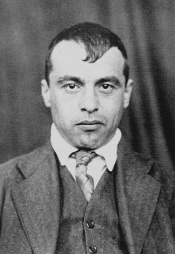
Der Visionarr
Lampe blöck nicht.
Aus der Wand fuhr ein dünner Frauenarm.
Er war bleich und blau geädert.
Die Finger waren mit kostbaren Ringen bepatzt.
Als ich die Hand küßte, erschrak ich:
Sie war lebendig und warm.
Das Gesicht wurde mir zerkratzt.
Ich nahm ein Küchenmesser und zerschnitt ein paar Adern.
Eine große Katze leckte zierlich das Blut vom Boden auf.
Ein Mann indes kroch mit gesträubten Haaren
einen schräg an die Wand gelegten Besenstiel hinauf.
Jakob van Hoddis
(1887 – 1942)
Der Visionarr (Gedicht)
• fleursdumal.nl magazine
More in: Archive G-H, Archive G-H, Hoddis, Jakob van
Les Goncourt furent à la fois acteurs et mordants spectateurs d’un demi-siècle de vie littéraire et artistique. Écrivains, critiques, collectionneurs, ils marquèrent profondément leur temps. Cette biographie, rédigée par les deux plus grands spécialistes des Goncourt et appelée à faire date, renoue les fils de cette intense vie à deux.
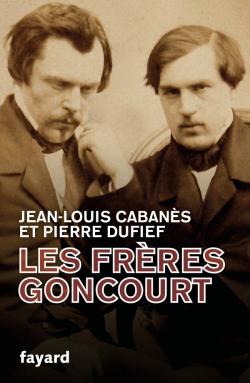 Le nom de Goncourt connaît la célébrité grâce au plus fameux des prix littéraires, mais il mérite aussi de survivre car il fut porté par deux frères, hommes de lettres novateurs, irremplaçables témoins de leur temps.
Le nom de Goncourt connaît la célébrité grâce au plus fameux des prix littéraires, mais il mérite aussi de survivre car il fut porté par deux frères, hommes de lettres novateurs, irremplaçables témoins de leur temps.
Leur double biographie ressuscite un demi-siècle de vie littéraire et artistique, où l’on croise Gautier et Flaubert, où l’on côtoie Renan, Taine, Berthelot, Daudet, Zola. Collectionneurs impénitents, esthètes dolents et élitistes, Jules et Edmond de Goncourt ont transformé leur vie et celle de leurs proches en pages d’écriture. Leur Journal, leurs romans, qui ont initié le naturalisme et la littérature fin de siècle, la création de l’académie des Goncourt, tout témoigne de leur aspiration à la survie littéraire. Leurs engagements avant-gardistes s’associent paradoxalement à un conservatisme politique qui n’exclut ni la misogynie ni l’antisémitisme.
Fondée sur des archives familiales, sur des correspondances largement inédites et sur le dépouillement de la presse de la seconde moitié du xixe siècle, cette biographie magistrale s’attache à l’œuvre littéraire et historique aujourd’hui méconnue, elle renoue les fils d’une intense vie à deux, en pénétrant dans l’intimité affective d’une gémellité fusionnelle.
Jean-Louis Cabanès, professeur émérite à l’université de Paris-Nanterre, spécialiste du roman au xixe siècle et des rapports qu’entretiennent écrits littéraires et textes médicaux, est l’auteur de nombreux ouvrages. Il dirige un collectif chargé d’établir une édition critique du Journal des Goncourt.
Pierre Dufief, professeur émérite à l’université de Paris-Nanterre, a travaillé sur le roman (1850-1914) ainsi que sur les écritures personnelles (Les Écritures de l’intime, Bréal, 2001). Président de la Société des amis des frères Goncourt, il édite la correspondance des deux frères.
Les Frères Goncourt
Jean-Louis Cabanès et Pierre Dufief
Parution: 11/03/2020
Pages: 800
Format: 155 x 235 mm
Collection: Histoire Fayard
EAN: 9782213685960
Prix: € 35.00
Les Frères Goncourt de Jean-Louis Cabanès et Pierre Dufief a reçu la Mention spéciale du Prix Goncourt de la biographie.
# new books
Les Frères Goncourt
Jean-Louis Cabanès & Pierre Dufief
• fleursdumal.nl magazine
More in: #Biography Archives, - Book News, Archive G-H, Archive G-H, Awards & Prizes, Émile Zola, Histoire de France, Jules et Edmond de Goncourt, Libraries in Literature
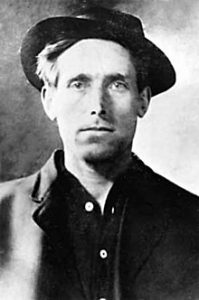
What we want
(Tune: “Rainbow”)
We want all the workers in the world
to organize
Into a great big union grand
And when we all united stand
The world for workers we’ll demand
If the working class could only see
and realize
What mighty power labor has
Then the exploiting master class
It would soon fade away.
CHORUS
Come all ye toilers that work
for wages,
Come from every land,
Join the fighting band,
In one union grand,
Then for the workers we’ll make upon
this earth a paradise
When the slaves get wise
and organize.
We want the sailor and the tailor
and the lumberjacks,
And all the cooks and Laundry girls,
We want the guy that dives for pearls,
The pretty maid that’s making curls,
And the baker and staker
and the chimneysweep
We want the man that’s slinging hash,
The child that works for little cash
In one union grand.
We want the tinner and the skinner
and the chambermaid,
We want the man with spikes on soles,
We want the man that’s digging holes,
We want the man that’s climbing poles,
And the tracker and the mucker
and the hired man
And all the factory girls and clerks,
Yes, we want every one that works,
In one union grand.
Joe Hill
(1879-1915)
What we want
Song
• fleursdumal.nl magazine
More in: # Music Archive, Archive G-H, Joe Hill, Workers of the World
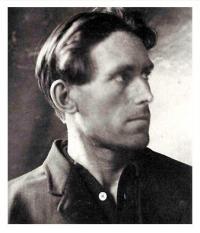
Where the Fraser River Flows
(Tune: “Where the River Shannon Flows”)
Fellow workers pay attention to what I’m going to mention,
For it is the fixed intention of the Workers of the World.
And I hope you’ll all be ready, true-hearted, brave and steady,
To gather ’round our standard when the Red Flag is unfurled.
CHORUS
Where the Fraser river flows, each fellow worker knows,
They have bullied and oppressed us, but still our Union grows.
And we’re going to find a way, boys, for shorter hours and better pay, boys;
And we’re going to win the day, boys; where the river Fraser flows.
For the gunny-sack contractors have all been dirty actors,
And they’re not our benefactors, each fellow worker knows.
So we’ve got to stick together in fine or dirty weather,
And we will show no white feather, where the Fraser river flows.
New the boss the law is stretching, bulls and pimps he’s fetching,
And they are a fine collection, as Jesus only knows.
But why their mothers reared them, and why the devil spared them,
Are questions we can’t answer, where the Fraser river flows.
Why should any worker be without the necessities of life when ten men can produce enough for a hundred?
Joe Hill
(1879-1915)
Where the Fraser River Flows
(song)
Songs of the Workers (15th edition) (1919)
Industrial Workers of the World
Where the Fraser River Flows by Joe Hill (uncredited). Onward, “One Big Union!”
The tune to this song, “Where the River Shannon Flows” (1906) written by James J. Russell.
• fleursdumal.nl magazine
More in: # Music Archive, Archive G-H, Joe Hill, Workers of the World
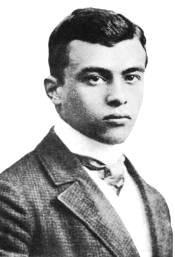
Der Todesengel
I
Mit Trommelwirbeln geht der Hochzeitszug,
in seidner Sänfte wird die Braut getragen,
durch rote Wolken weißer Rosse Flug,
die ungeduldig goldne Zäume nagen.
Der Todesengel harrt in Himmelshallen
als wüster Freier dieser zarten Braut.
Und seine wilden, dunklen Haare fallen
die Stirn hinab, auf der der Morgen graut.
Die Augen weit, vor Mitleid glühend offen
wie trostlos starrend hin zu neuer Lust,
ein grauenvolles, nie versiegtes Hoffen,
ein Traum von Tagen, die er nie gewußt.
II
Er kommt aus einer Höhle, wo ein Knabe
ihn als Geliebte wunderzart umfing.
Er flog durch seinen Traum als Schmetterling
und ließ ihn Meere sehn als Morgengabe.
Und Lüfte Indiens, wo an Fiebertagen
das greise Meer in gelbe Buchten rennt.
Die Tempel, wo die Priester Zimbeln schlagen,
um Öfen tanzend, wo ein Mädchen brennt.
Sie schluchzt nur leise, denn der Schar Gesinge
zeigt ihr den Götzen, der auf Wolken thront
und Totenschädel trägt als Schenkelringe,
der Flammenqual mit schwarzen Küssen lohnt.
Betrunkne tanzen nackend zwischen Degen,
und einer stößt sich in die Brust und fällt.
Und während blutig sich die Schenkel regen,
versinkt dem Knaben Tempel, Traum und Welt.
III
Dann flog er hin zu einem alten Manne
und kam ans Bett als grüner Papagei.
Und krächzt das Lied: »O schmähliche Susanne!«
Die längst vergessne Jugendlitanei.
Der stiert ihn an. Aus Augen glasig blöde
blitzt noch ein Strahl. Ein letztes böses Lächeln
zuckt um das zahnlose Maul. Des Zimmers Öde
erschüttert jäh ein lautes Todesröcheln.
IV
Die Braut friert leise unterm leichten Kleide.
Der Engel schweigt. Die Lüfte ziehn wie krank.
Er stürzt auf seine Knie. Nun zittern beide.
Vom Strahl der Liebe, der aus Himmeln drang.
Posaunenschall und dunkler Donner lachen.
Ein Schleier überflog das Morgenrot.
Als sie mit ihrer zärtlichen und schwachen
Bewegung ihm den Mund zum Küssen bot.
Jakob van Hoddis
(1887 – 1942)
Der Todesengel (Gedicht)
• fleursdumal.nl magazine
More in: Archive G-H, Archive G-H, Hoddis, Jakob van
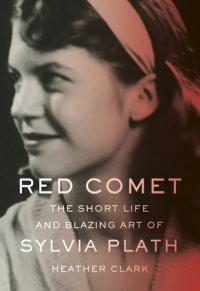 The highly anticipated new biography of Sylvia Plath that focuses on her remarkable literary and intellectual achievements, while restoring the woman behind the long-held myths about her life and art.
The highly anticipated new biography of Sylvia Plath that focuses on her remarkable literary and intellectual achievements, while restoring the woman behind the long-held myths about her life and art.
With a wealth of never-before-accessed materials–including unpublished letters and manuscripts; court, police, and psychiatric records; and new interviews–Heather Clark brings to life the brilliant daughter of Wellesley, Massachusetts.
Sylvia Plath had poetic ambition from a very young age and was an accomplished, published writer of poems and stories even before she became a star English student at Smith College in the early 1950s. Determined not to read Plath’s work as if her every act, from childhood on, was a harbinger of her tragic fate, Clark here evokes a culture in transition, in the shadow of the atom bomb and the Holocaust, as she explores Plath’s world: her early relationships and determination not to become a conventional woman and wife; her conflicted ties to her well-meaning, widowed mother; her troubles at the hands of an unenlightened mental-health industry; her Cambridge years and thunderclap meeting with Ted Hughes, a marriage of true minds that would change the course of poetry in English; and much more.
Clark’s clear-eyed sympathy for Hughes, his lover Assia Wevill, and the other demonized players in the arena of Plath’s suicide promotes a deeper understanding of her final days, with their outpouring of first-rate poems. Along with illuminating readings of the poems themselves, Clark’s meticulous, compassionate research brings us closer than ever to the spirited woman and visionary artist who blazed a trail that still lights the way for women poets the world over.
Heather Clark earned her bachelor’s degree in English Literature from Harvard University and her doctorate in English from Oxford University. Her awards include a National Endowment for the Humanities Public Scholar Fellowship; a Leon Levy Biography Fellowship at the City University of New York; and a Visiting U.S. Fellowship at the Eccles Centre for American Studies, British Library. A former Visiting Scholar at the Oxford Centre for Life-Writing, she is the author of The Grief of Influence: Sylvia Plath and Ted Hughes and The Ulster Renaissance: Poetry in Belfast 1962-1972. Her work has appeared in publications including Harvard Review and The Times Literary Supplement, and she recently served as a consultant for the BBC documentary Sylvia Plath: Life Inside the Bell Jar. She divides her time between Chappaqua, New York, and Yorkshire, England, where she is Professor of Contemporary Poetry at the University of Huddersfield.
Red Comet
The Short Life and Blazing Art of Sylvia Plath
By Heather Clark
Hardcover
1152 Pages
$40.00
Oct 06, 2020
ISBN 9780307961167
Published by Knopf
$40.00
# new biography
• fleursdumal.nl magazine
More in: #Biography Archives, - Archive Tombeau de la jeunesse, - Book Lovers, - Book News, Archive C-D, Archive G-H, Archive O-P, Archive O-P, Plath, Sylvia

Morgens
Ein starker Wind sprang empor.
Öffnet des eisernen Himmels blutende Tore.
Schlägt an die Türme.
Hellklingend laut geschmeidig über die eherne Ebene der Stadt.
Die Morgensonne rußig. Auf Dämmen donnern Züge.
Durch Wolken pflügen goldne Engelpflüge.
Starker Wind über der bleichen Stadt.
Dampfer und Kräne erwachen am schmutzig fließenden Strom.
Verdrossen klopfen die Glocken am verwitterten Dom.
Viele Weiber siehst du und Mädchen zur Arbeit gehn.
Im bleichen Licht. Wild von der Nacht. Ihre Röcke wehn.
Glieder zur Liebe geschaffen.
Hin zur Maschine und mürrischem Mühn.
Sieh in das zärtliche Licht.
In der Bäume zärtliches Grün.
Horch! Die Spatzen schrein.
Und draußen auf wilderen Feldern
singen Lerchen.
Jakob van Hoddis
(1887 – 1942)
Morgens (Gedicht)
•fleursdumal.nl magazine
More in: Archive G-H, Archive G-H, Hoddis, Jakob van

Workers of the World,
Awaken
Workers of the world, awaken!
Break your chains. demand your rights.
AII the wealth you make is taken
By exploiting parasites.
Shall you kneel in deep submission
From your cradles to your graves?
ls the height of your ambition
To be good and willing slaves?
CHORUS:
Arise, ye prisoners of starvation!
Fight for your own emancipation;
Arise, ye slaves of every nation.
In One Union grand.
Our little ones for bread are crying,
And millions are from hunger dying;
The end the means is justifying,
‘Tis the final stand.
If the workers take a notion,
They can stop all speeding trains;
Every ship upon the ocean
They can tie with mighty chains.
Every wheel in the creation,
Every mine and every mill ,
Fleets and armies of the nation,
Will at their command stand still.
Join the union, fellow workers,
Men and women, side by side;
We will crush the greedy shirkers
Like a sweeping, surging tide;
For united we are standing,
But divided we will fall;
Let this be our understanding —
“All for one and one for all.”
Workers of the world, awaken!
Rise in all your splendid might;
Take the wealth that you are making,
It belongs to you by right.
No one will for bread be crying,
We’ll have freedom, love and health.
When the grand red flag is flying
In the Workers’ Commonwealth.
Joe Hill
(1879-1915)
Workers of the World, Awaken
(song)
• fleursdumal.nl magazine
More in: # Music Archive, Archive G-H, Joe Hill, Workers of the World

Weltende
Dem Bürger fliegt vom spitzen Kopf der Hut,
In allen Lüften hallt es wie Geschrei,
Dachdecker stürzen ab und gehn entzwei.
Und an den Küsten – liest man – steigt die Flut.
Der Sturm ist da, die wilden Meere hupfen
An Land, um dicke Dämme zu zerdrücken.
Die meisten Menschen haben einen Schnupfen.
Die Eisenbahnen fallen von den Brücken.
Jakob van Hoddis
(1887 – 1942)
Weltende (Gedicht)
• fleursdumal.nl magazine
More in: Archive G-H, Archive G-H, Hoddis, Jakob van

Die Liebe
Wenn ihr Freunde vergeßt, wenn ihr die Euern all,
O ihr Dankbaren, sie, euere Dichter schmäht,
Gott vergeb es, doch ehret
Nur die Seele der Liebenden.
Denn o saget, wo lebt menschliches Leben sonst,
Da die knechtische jetzt alles, die Sorge, zwingt?
Darum wandelt der Gott auch
Sorglos über dem Haupt uns längst.
Doch, wie immer das Jahr kalt und gesanglos ist
Zur beschiedenen Zeit, aber aus weißem Feld
Grüne Halme doch sprossen,
Oft ein einsamer Vogel singt,
Wenn sich mählich der Wald dehnet, der Strom sich regt,
Schon die mildere Luft leise von Mittag weht
Zur erlesenen Stunde,
So ein Zeichen der schönern Zeit,
Die wir glauben, erwächst einziggenügsam noch,
Einzig edel und fromm über dem ehernen,
Wilden Boden die Liebe,
Gottes Tochter, von ihm allein.
Sei gesegnet, o sei, himmlische Pflanze, mir
Mit Gesange gepflegt, wenn des ätherischen
Nektars Kräfte dich nähren,
Und der schöpfrische Strahl dich reift.
Wachs und werde zum Wald! eine beseeltere,
Vollentblühende Welt! Sprache der Liebenden
Sei die Sprache des Landes,
Ihre Seele der Laut des Volks!
Friedrich Hölderlin
(1770 – 1843)
Die Liebe
Gedicht
• fleursdumal.nl magazine
More in: Archive G-H, Archive G-H, Hölderlin, Friedrich
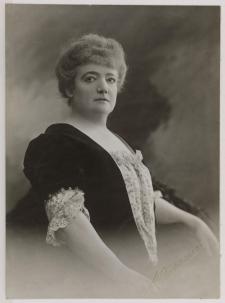
Sérénade printanière
Hier comme aujourd’hui, ce soir comme demain,
Je t’adore !
Quand je vois ton regard, quand je frôle ta main,
C’est l’aurore !
Qui donc nous avait dit que le monde est méchant,
Que l’on souffre,
Que la vie est un pont qui tremble, se penchant
Sur un gouffre ?
Où donc sont les ennuis, les erreurs, les dangers,
Les désastres ?
Avril gazouille et rit dans les tendres vergers
Fleuris d’astres !
Le sombre hiver a fui ; le radieux printemps
Nous délivre.
Viens mêler à mes pleurs tes baisers haletants ;
Je veux vivre !
Nos coeurs sont confondus, nos âmes pour toujours
Sont unies ;
Nous avons épelé le livre des amours
Infinies !
Et je ne vois plus rien que l’éclair de tes yeux
Pleins de fièvres…
Viens ! je veux soupirer les suprêmes aveux
Sur tes lèvres !…
Augusta Holmès
(1847 – 1903)
Sérénade printanière
• fleursdumal.nl magazine
More in: Archive G-H, Archive G-H, CLASSIC POETRY

The Rebel Girl
There are women of many descriptions
In this queer world, as everyone knows.
Some are living in beautiful mansions,
And are wearing the finest of clothes.
There are blue blooded queens and princesses,
Who have charms made of diamonds and pearl;
But the only and thoroughbred lady
Is the Rebel Girl.
CHORUS:
That’s the Rebel Girl, that’s the Rebel Girl!
To the working class she’s a precious pearl.
She brings courage, pride and joy
To the fighting Rebel Boy.
We’ve had girls before, but we need some more
In the Industrial Workers of the World.
For it’s great to fight for freedom
With a Rebel Girl.
Yes, her hands may be hardened from labor,
And her dress may not be very fine;
But a heart in her bosom is beating
That is true to her class and her kind.
And the grafters in terror are trembling
When her spite and defiance she’ll hurl;
For the only and thoroughbred lady
Is the Rebel Girl.
Joe Hill
(1879-1915)
The Rebel Girl
Song
• fleursdumal.nl magazine
More in: # Music Archive, Archive G-H, Joe Hill, Workers of the World
Thank you for reading Fleurs du Mal - magazine for art & literature